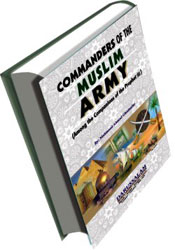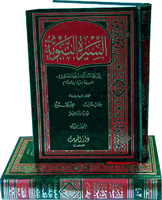warrior_1_uk
Rising Member
- Messages
- 14
- Reaction score
- 0
Jazakallahu khairan
I copied them they will help.However if the Ebook is available it will help too.
Salams
Warrior_1_uk
Jazakallahu khairan

salamsAsallamu Alaykum,
Did anyone download the Sirat Ibn Hisham?, the links not working any more. I would appreciate it if someone uploaded it.
Jazak'Allahu Khairen
Wasallamu Alaykum.
slams broAsallamu Alaykum,
Did anyone download the Sirat Ibn Hisham?, the links not working any more. I would appreciate it if someone uploaded it.
Jazak'Allahu Khairen
Wasallamu Alaykum.








Follow along with the video below to see how to install our site as a web app on your home screen.
Note: This feature may not be available in some browsers.
